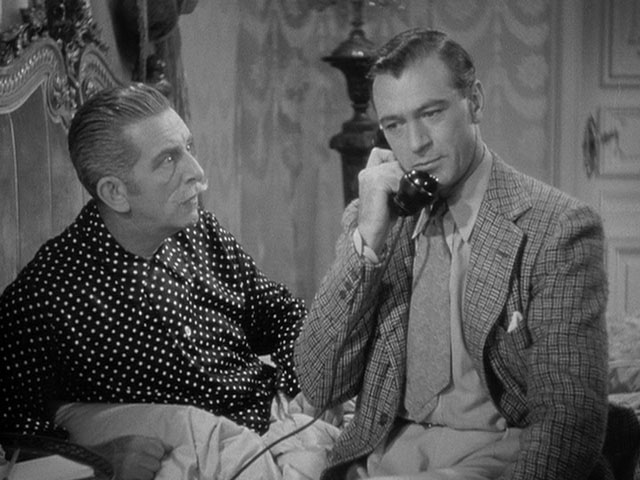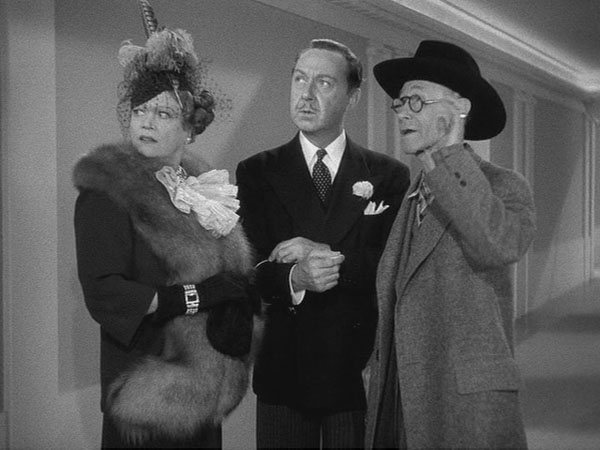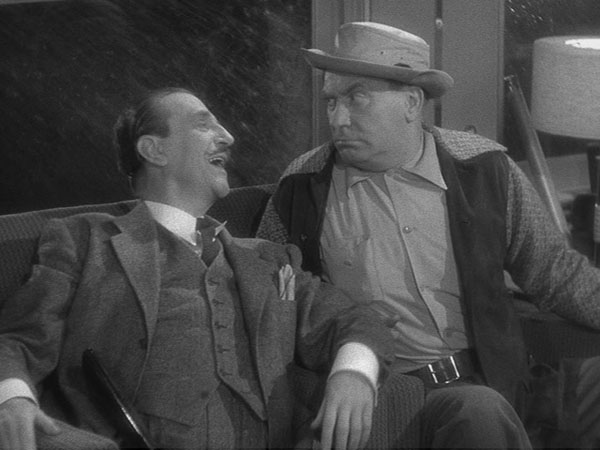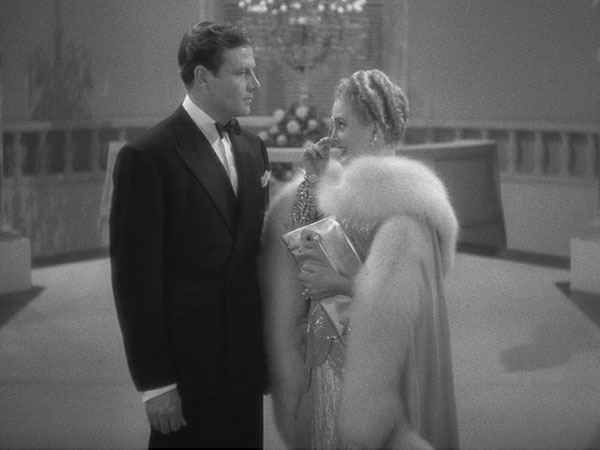Starring a broooadly overacting, hammy but kinda charismatic Maurice Chevalier as an Austrian lieutenant. Movie opens with a tailor knocking on Maurice’s door vainly attempting to collect on his bill (a year later, Maurice would star in Love Me Tonight as a tailor vainly attempting to collect on an aristocrat’s bill). Nobody answers, and immediately after he walks off, a young girl approaches the door, gives the secret knock and is let in. Yes, there’s actual sex in this movie – offscreen, but it’s acknowledged. It’s that Pre-Code Hollywood that TCM always salivates over before showing tame, dull movies like The Divorcee.
Maurice, a naughty lieutenant:
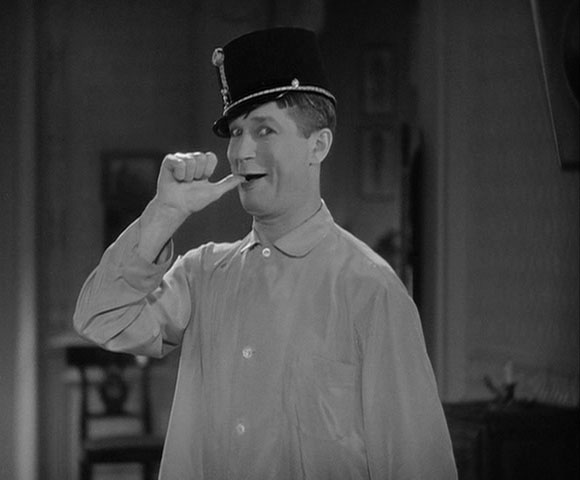
The movie is, as promised, a musical comedy (two genres which encourage broad acting) as well as a romantic drama, and the late 20’s/early 30’s had their share of hugely broad comedy performances in film, so in context Maurice is pretty alright. And he’s got kind of a charming, roguish smile on nearly all the time… sucked me in after about ten minutes. Katy disagrees, but liked the movie despite Maurice.
Maurice joins his friend Max to act as wingman so nervous, married Max can pick up a hot young violinist at the concert, but Maurice falls for the girl (Franzi) and takes her home himself, with some sexy banter about which meals they’ll enjoy together (ahem, breakfast).
Max, left, is Charles Ruggles, the viscount in Love Me Tonight, also in Trouble In Paradise. Chevalier was a big star from 1929-36 – then IMDB says he was falsely accused of being a nazi collaborator and his acting career was derailed for a buncha years, with a big comeback in Gigi in ’58.
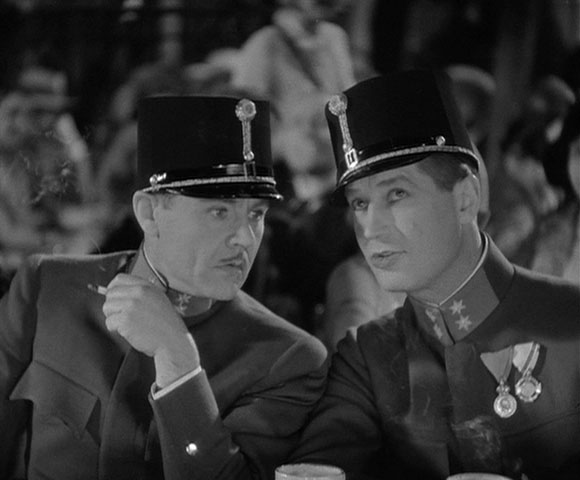
Claudette Colbert (Franzi) was later Cecil B. DeMille’s Cleopatra, also starred in It Happened One Night, Midnight, and The Palm Beach Story.

The young lovers have a good thing going, but flirting in public brings disaster, when Austrian soldier Maurice winks at Franzi across a street just as the coach carrying the king and princess of Flausenthurm drives between them. The wink and the princess’s appalled reaction are photographed and published in the paper, causing an international scandal, but everyone settles down when Maurice explains that he was overcome by the princess’s beauty and is bullied into agreeing to marry her. So M. is off to Flausenthurm, but won’t sleep with his royal bride, preferring to step out on the town. The moody king gets over the inferiority complex he had in Austria, is now smitten with Maurice and tells his daughter not to worry, playing checkers with her every night as a sad substitute for marital sex.
Princess Miriam Hopkins = Savannah-born star of Trouble in Paradise, who won an Oscar a few years later then didn’t do a whole lot of movies I’ve heard of. King George Barbier was in a ton of stuff through the 40’s, including The Milky Way and The Merry Widow.

The movie is a musical, but I don’t remember most of the songs or even where they occur, except climactic number “Jazz Up Your Lingerie.” You see, Maurice still loves the loose, free, totally modern Franzi, and he still has not-too-secret affairs with her since her violin group is on tour in Flausenthurm. So one day Princess Anna sorta kidnaps Franzi to ask her advice… Franzi helps Anna out, giving up on her man with the great line: “You mustn’t worry about me. I knew it all the time. Girls who start with breakfast don’t usually stay for supper.”

During the music number, Anna’s frumpy clothes all turn magically into hot things, she learns to smoke and play jazz on the piano, and when Maurice comes home he can not believe his eyes. She takes him to the bedroom and wordlessly suggests a game of checkers, but he keeps tossing the board away… finally tosses it onto the bed, and just look at the expressions on their faces:

Everyone who sees it today comments on the sexual freeness, but the original New York Times review in 1931 didn’t mention any of that, called it a “highly successful production” with “charming” music and “splendid” performances, and spoiled the entire plot.
J. Weinman: “The Smiling Lieutenant is based on Oscar Straus’s Viennese operetta A Waltz Dream, though Lubitsch relegated all the operetta’s songs to background music and had Straus write a few new songs in a more modern style. As he usually did when adapting a play or an operetta, Lubitsch kept the basic outline of the story but changed everything else.”




